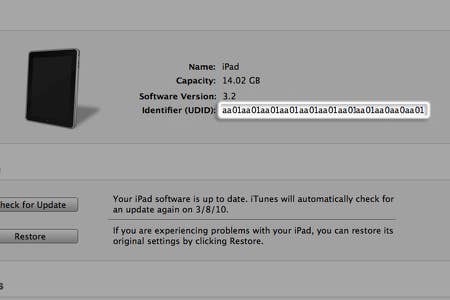Apple begins rejecting apps that mine unique device IDs
Privacy concerns have Apple changing what developers can access on user devices
Apple has begun rejecting apps that access unique device identifiers (UDIDs), according to a report by TechCrunch. The new strategy began this week, with Apple facing continuing pressure from lawmakers over consumer privacy issues. The UDID is a unique alphanumeric string tied to every Apple device that currently allows app developers to track customers for various reasons. With the changes, developers are now looking for new ways to keep track of their userbase.
"Everyone's scrambling to get something into place," said Victor Rubba, chief executive officer of Canadian developer Fluik. "We're trying to be proactive and we've already moved to an alternative scheme."
"This is definitely happening. In the next month or two, this is going to have an impact on all ad networks and apps using advertising. Everybody's trying to make their own choices about what to use instead," said Playhaven CEO Andy Yang.
TechCrunch reports that two of Apple's ten review teams are rejecting apps that access UDIDs. This number will rise to four next week, and continue rising until all teams are rejecting apps under the new rules. Mobile ad networks are particularly hit by this change, as UDIDs allow them to track users' habits from app to app.
"The UDID is essential for managing the conversion loop," said Jim Payne, CEO of mobile monetization platform MoPub. "All the performance dollars that are spent on mobile are going to be impacted by this not being there."
Developers are sliding through Apple's review process by asking users if they want to be tracked by their UDIDs. However, some believe this solution won't be effective if enough consumers don't opt-in. Others are still looking for alternate methods like Wi-Fi MAC addresses or the new OpenUDID scheme.
"I just don't think the opt-in rate will be that high," he said. "It feels like a Band-Aid solution for now."

